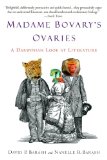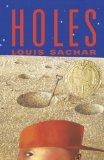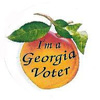 I found Madame Bovary’s Ovaries, which I finished last night, to be a very entertaining and enlightening read. I will be the first one to admit that I never saw much of a connection between science and literature. Yes, I had often spun that yarn about how literature is essentially about the human condition, and how better to learn about ourselves than to study our literature, but I always saw this statement in terms of psychology, not biology. What David and Nanelle Barash accomplish is showing the reader how to look at literature through the lens of Darwinism. While I think the actions of some characters do fit patterns, there are others that seem to go against their evolutionary nature, and the Barashes are quick to note in their epilogue that this method of interpreting literature is but one of many.
I found Madame Bovary’s Ovaries, which I finished last night, to be a very entertaining and enlightening read. I will be the first one to admit that I never saw much of a connection between science and literature. Yes, I had often spun that yarn about how literature is essentially about the human condition, and how better to learn about ourselves than to study our literature, but I always saw this statement in terms of psychology, not biology. What David and Nanelle Barash accomplish is showing the reader how to look at literature through the lens of Darwinism. While I think the actions of some characters do fit patterns, there are others that seem to go against their evolutionary nature, and the Barashes are quick to note in their epilogue that this method of interpreting literature is but one of many.
In this book, the Barashes break down their dissection of literature into categories:
- Othello and Other Angry Fellows: Male Sexual Jealousy
- The Key to Jane Austen’s Heart: What Women Want and Why
- How to Make Rhett Give a Damn: What Men Want and Why
- Madame Bovary’s Ovaries: The Biology of Adultery
- Wisdom from The Godfather: Kin Selection, or the Enduring Importance of Being Family
- The Cinderella Syndrome: Regarding the Struggles of Stepchildren
- On the Complaints of Portnoy, Caulfield, and Others: Parent-Offspring Conflict
- Of Musketeers and Mice and Men and Wrath and Reciprocity and Friendship: In Steinbeck Country and Elsewhere
I do think that the authors make a convincing argument that long before Darwin even cooked up his Theory of Evolution, writers were creating characters that obeyed Darwin’s biological observations.
Of the chapters, I found the one on Reciprocity and Friendship the most difficult. I felt that it was in this chapter that the writers strained themselves the most to make what I felt were tenuous connections to biological instincts toward reciprocity. However, I found the chapters on adultery and what men and women want very enlightening. The chapter on stepchildren was also very interesting (and mentioned my favorite boy wizard).
In all, I would recommend this book highly to folks interested in either literature or science (or both), especially if they don’t see a connection between the two. I found the writers’ style engaging and very easy to follow, so those of us who haven’t been in a biology classroom in 20 years or so need not be intimidated by the prospect of scientific jargon. Cleary the writers’ goal was to bring an understanding of biology to the layman.
As much as I have become used to the notion of studying literature in order to understand the human condition, I found it interesting in this instance to study the human condition in order to understand literature.





